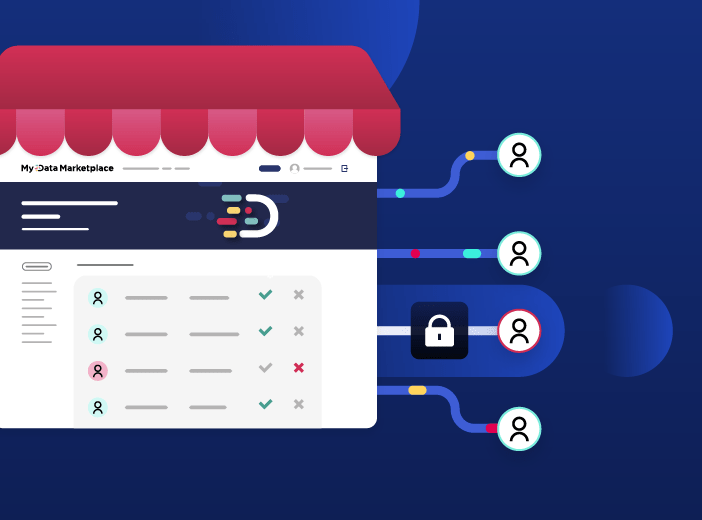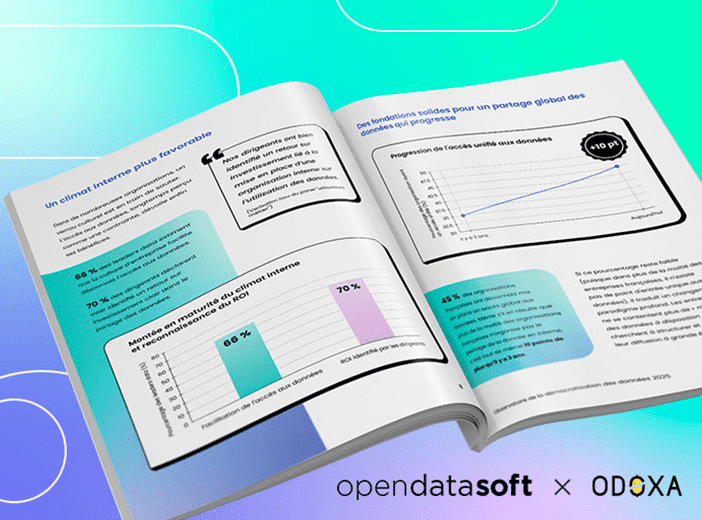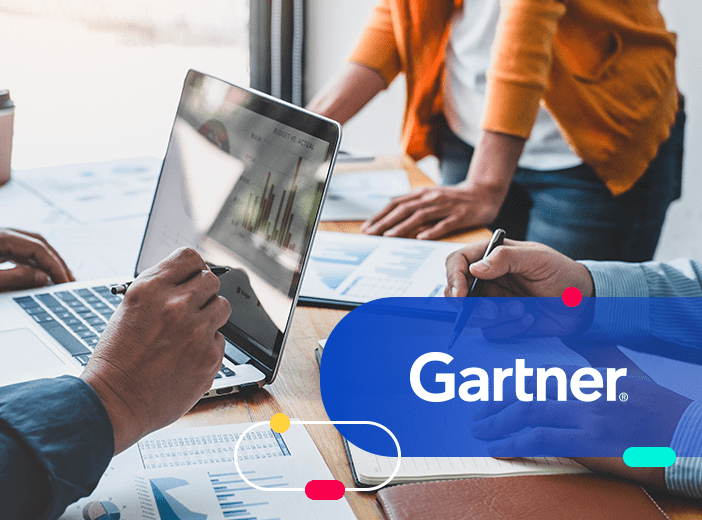Let’s build a meaningful future thanks to data

What common strategy can we build using data that addresses our current crises and challenges? How can we make the organizations of the future more resilient thanks to a shared foundation of data that generates value?
The past year saw strong growth for Opendatasoft. This was above all thanks to the successes that our customers achieved through data-based transformation initiatives. We were there to support them in their data democratization projects, both internally and externally, always with a single, common goal: to use data to help create a meaningful digital world.
Our mission for 11 years has been to enable the maximum number of people to collaborate in different ways with data, internally within organizations, but also with all the players in their ecosystems. It is only via these new methods of sharing accurate information through self-service data that we will be able to meet the many environmental, economic and societal challenges we face.
By creating new data experiences that simplify access to accurate information and enable its collaborative use our customers are giving meaning to the digital world.
We are proud to be running over 2,500 data projects around the world today, across all sectors, and to be supporting pioneering organizations as they increase and expand data usage. Together, we are improving organizations’ operational performance, creating new income sources, and building more transparent, trust-based relationships that generate value across ecosystems.
What common strategy can we build using data that addresses our current crises and challenges? How can we make the organizations of the future more resilient thanks to a shared foundation of data that generates value?
Thanks to an exceptional funding round of 21 million euros announced in January 2022 and a headcount that grew by more than 50% over the past year, in 2023 we will continue with our ambition to make an even greater number of meaningful data projects possible. These projects will enable organizations to mature in multiple areas, spanning technology, organization and data usage, focusing on these three priority themes:
Urgently connecting ecosystems to act in times of crisis
Recent events demonstrate the vital importance of data to decision-making and planning at times of crisis. Both during the Covid-19 pandemic and the energy market crisis bringing together information from multiple players enabled deeper understanding of what was actually happening, allowing relevant actions to be taken quickly. In fact, a number of European energy providers launched their open data portals in 2022: Energias de Portugal, Northern Ireland Electricity Networks, Scottish Power Energy Networks, Electricity North West and Northern Power Grid, giving them better control over current activities but, above all providing a shared vision to achieve the energy transition.
Even more recently, France’s fall fuel shortage again proved that data availability is crucial to informing ecosystems. During this period the fuel price dataset published by the French Ministry of Economy and Finance saw significant usage peaks thanks to increased fuel searches by motorists.
To support these meaningful and vital projects we are strengthening our platform, continuously designing new features to drive greater data usage.
Creating shared data portals and spaces to encourage collaboration and co-innovation
As problems become more complex and the need to resolve them becomes more pressing, creating shared spaces fosters co-innovation and ensures that everyone can move forward together to solve specific issues. This approach is being adopted by more and more organizations in many sectors. Two leading examples are the Futur4Care accelerator — created by an alliance between Sanofi, Capgemini, Generali and Orange to support e-health projects — and the consortium of mobility operators in Tel Aviv tasked with optimizing travel safety and flow. The common element in these initiatives is information sharing between partners, which is vital for creating combined approaches and building programs that have a strong, positive impact on the future.
Players in all sectors are gradually adopting this collaborative approach and creating shared data portals, driving a wide range of benefits for entire industries and ecosystems, across a diverse range of stakeholders. These provide an opportunity to develop high added value projects, thanks to the sharing of previously under-exploited business data, which give everyone’s activities a collective sense of purpose.
Being accountable and documenting our impact
With pressure from competitors and various regulatory obligations, companies and public sector organizations must be accountable for their actions in a way that is both visible and understandable. Data can accelerate information sharing and promote transparency, going beyond mere financial performance objectives. Where we once had the “digital native” generation, born with technological devices in their hands, we now have the “data native” generation, who are used to accessing raw data autonomously and using it in their day-to-day life. For this generation, whether as employees, consumers or citizens, transparency through data is a non-negotiable pre-requisite.
From luxury (Kering) to energy (Enedis, EDF), banking (BPCE), transport (Infrabel), and insurance (Lamie Mutuelle, MAIF), all business sectors have understood this. Across the globe, private and public institutions are working to demonstrate transparency around their activities and objectives.
We can see that to succeed in this transformation we must work differently thanks to data. Despite significant progress, data is still widely untapped as a tool for collaboration, both inside and outside organizations, with stakeholders and ecosystems. Decision making increasingly relies on a growing range of data sources. Therefore, we all have a role to play in democratizing data and ensuring the organizations of the future are resilient and capable of handling crises and meeting current, pressing challenges.



